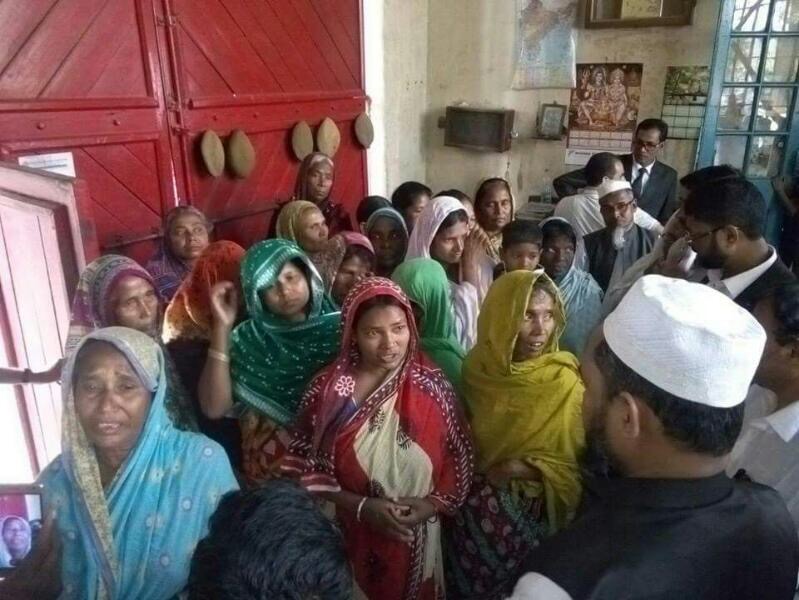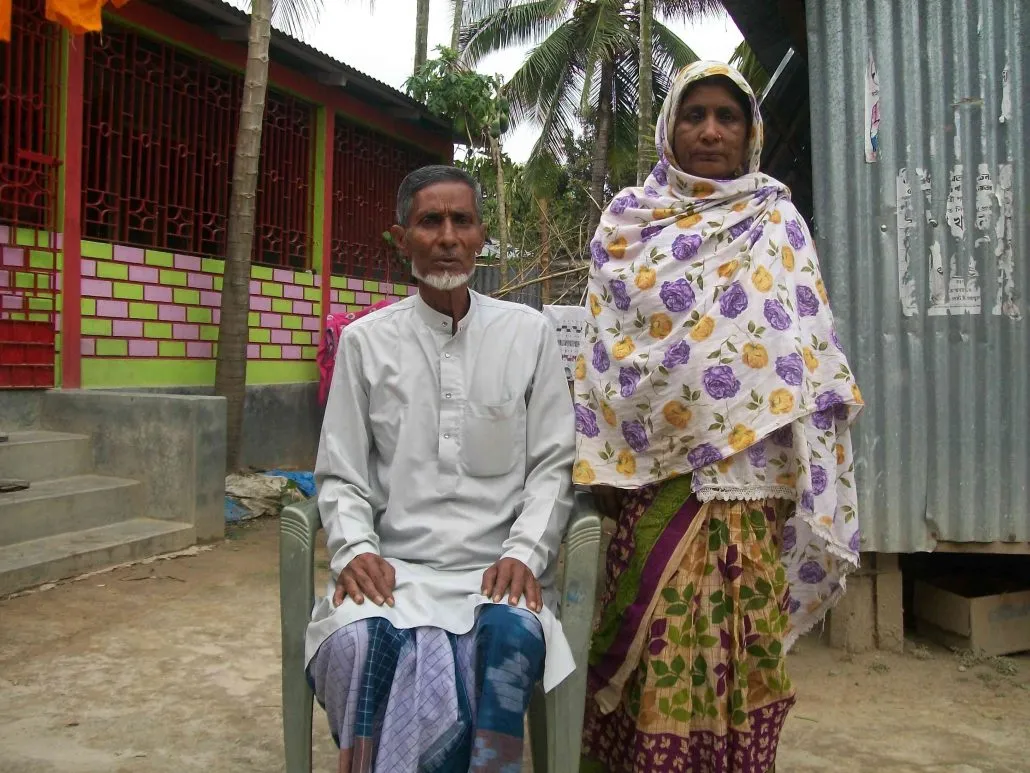.webp)
Faiyaz Ahmad Fyzie
Fayez Uddin Ahmed is one of the personalities who tirelessly worked for the upliftment of the Indigenous Pasmanda Muslims of the Barak Valley of Assam. He was born in a poor Mahimal family in a village named Tinghari in the Cachar district of Assam on July 7, 1919. The Mahimal or the Muslim Fisherman Caste of the erstwhile Sylhet-Cacahr region was the dominant caste of the region but also one of the most backward Muslim Communities in India.
The indigenous fishermen castes of Kaibertas, Das, Patini, Namasudras, Mal, Pod, Chandals, etc. got converted to Islam and came to be known as Mahimal. This region was flood-prone due to the presence of a large number of water bodies such as beel (lakes), haors, (wetlands, marshes) rivers, etc. Fishing and boating were key occupations and a section of people remained dependent on fishing even after the introduction of agriculture.
After the advent of the famous Sufi saint Sheikh Shahjalal (1443 CE) with his 360 disciples (Awlias) religious conversions among the indigenous population. Sylhet region of Bangladesh was one of the regions that experienced large-scale conversion to Islam in India. The word Mahimal originated from two Persian words Mahi meaning fish and Arabic Mallah meaning boatman. Its adjoining region of Cachar (Assam) was greatly influenced by Islam and the converted people hoped to live with social equality and justice.
The social stratification of Muslims developed based on two important occupations – Mihimal (Fisherman) and Bangal (Bengali Cultivators. Even after conversion to Islam, their socio-economic condition remained unchanged. They were awarded the status of Ajlaaf (uncultured) by the so-called Ashraaf (Nobel) comprised of landed and upper-caste Muslims. They continued to pursue their ancestral occupation of fishing and boating usually looked down upon by their Muslim co-religionists. Their demeaning occupation on the one hand and their poor socio-economic condition on the other hand make the situation of neophytes the most deplorable. The continued discrimination and social disabilities imposed by the so-called upper-caste Muslims pushed them to the outer edge of society.
Fayez Uddin Ahmed was born in a farmer’s family. His parents did not have much formal education, yet harboured a great desire to educate their son. Hence, they admitted him to a village primary school. After completing study in middle school situated in block headquarters (Katigora), his parents sent him to present Sylhet (Bangladesh) and admitted him to Rajnagar High School in Moulawi bazar in 1934.
 Women of Pasmanda community
Women of Pasmanda community
It was during his stay in Sylhet that he came in contact with some prominent and dedicated personalities of the Mahimal community such as Azizur Rahman, Afaz Uddin, Sikandar Ali, Khalilur Rahman, and others. He earned his valuable inspiration for social service and the idea of community welfare by working with them. During this time, Janab Afaz Uddin (Rajnagar) of Sylhet contested in the Assam Legislative Assembly against Muslim League-nominated candidate Dewan Abdul Basit Choudhury, but suffered defeat with a small margin. But this failure opened a new door for future struggle for the oppressed Mahimal people.
In the year 1939, the Assam-Bengal Fisherman Conference was grandly organized in the Shahpur village near Sylhet city with almost presence of 10 thousand people. The conference held its next session at Sylhet with great pomp and show and was presided over by MLA Bipin Bihari Das and graced by Akshay Kumar Das, minister of Agriculture (Assam), and attended by almost 10 to 15 thousand people. The meeting strongly demanded that the then-UP government recognize the Momin community as the Other Backward Class. Hence the Mahimal community of Assam must be accorded OBC status to provide them socio-economic opportunities. The Mahimal leaders right from the beginning took their stand against the Muslim League. Thereafter, a strong and active committee was headed by members from various districts and strongly raised the issue of deprived and ill-trodden Mahimal people. The conference also started to publish a journal named “Weekly Al-Jalal”. They strongly opposed the idea of the ‘Two Nation Theory’ and asserted indigenous Dalit identity.
The independence of India followed by the partition and the Sylhet referendum gave a severe blow to the movement of the Mahimal people. Sylhet was added to the territory of East Pakistan (Now Bangladesh) and only three and a half Thana area was added to the Cachar district of Assam (later formed Karimganj district). The movement launched by the backward people collapsed like a house of cards. Most of the intellectuals of the community remained in Sylhet. The Mahimal people living in the Barak Valley of Assam became leaderless to raise their issues and concerns.
Therefore, it became necessary to establish a similar organization in Barak Valley. Accordingly, the Mahimal leaders from Sylhet like Sheikh Sikandar Ali and Afaz Uddin visited Silchar and held meaningful discussions with Sadar Munsif of Siclahr Azizur Raham. They bestowed the responsibility of a probable organization to Fayez Uddin Ahmed with the objective of the betterment of the Community.
Fayez Uddin Ahmed widely discussed the matter with the prominent personalities of the community elucidating the necessity and objective of a strong organization for the upliftment of the community. However, the mullahs and village leaders from the community raised strong opposition to such an idea on the pretext that it would demean the name and fame of the community among the co-religionists. Even the so-called educated, a few in all stood in opposition. After strong opposition from native people, Fayez Uddin Ahmed with the support of a few well-wishers, finally laid down an organization named ‘ Nikhil Cachar Muslim Fisherman Federation.’
Right from its inception, the Federation raised the issues of the Mahimal people before the public representatives. Its major demand was to include the Mahimal community in the OBC category. A section of local leaders opposed this too. However, the Mahimal delegates met the then-chief minister of Assam at Shillong with their demand and Congess leaders like Moinul Haque Choudhury, Hemchandra Chakraborty, and Nanda Kishore Sinha submitted a memorandum of their demands to the Backward Commission.
Thereafter, under the leadership of Fayez Uddin Ahmed, the Federation launched a relentless struggle for the inclusion of Mahimal into the OBC category. Finally, the government of Assam accorded OBC status to the Mahimal (Muslim Fisherman of Barak Valley) in 1973.
The opposition headed by some village leaders tried their best against this move in vain. Finally, they approached Abdul Jalil Choudhury, MLA and leader of Nadawa- ut-Tamir (Dominant Islamic Movement of North-East India), and a few Muslim MLAs. Again, the government of Assam did not pay heed to their arguments. Having failed in their conspiracy, they resorted to violent means and repressive measures against the leaders of the Federation. They attacked the Federation leaders even inside mosques and filed false police cases against them.

Fayez Uddin Ahmed was their main target. He was ex-communicated by a cluster of villages around his native place. He and his family suffered serious difficulties in their daily life. Their family was prohibited in markets, shops, mosques, and other social gatherings. It was very difficult for Fayez Uddin Ahmed but he resisted all challenges for almost two years. Later with the efforts of a few noted Moulvis, this social boycott was withdrawn.
He asked his fellow people to educate their children and eradicate poverty. The Mahimal people lived in extreme darkness devoid of education mostly in the remote villages badly affected by seasonal floods. Such villages were devoid of schools, and roads and untouched by developmental works by the government. They were an extremely marginalized Muslim caste due to their association with the stigmatized occupation of fishing and far away from mainstream social life.
The Muslim Fisherman Federation continues its mission and is led by his son Advocate Anwarul Haque. He was the first postgraduate and the first lawyer from the community. He was later elected to the Assam Legislative Assembly in the year 2006 as the only Mahimal MLA. The government of Assam accorded a ‘Mahimal Development Council’ in the year 2009.
Fayez Uddin Ahmed believed in the ideology of Pasmanda Leaders such as Asim Bihari, Nur Muhammad, and Abdul Qaiyum Ansari. He completely rejected the ‘Two Nation Theory of Ashraaf led by Mohammad Ali Jinnah and held his firm faith in the secular Indian constitution where the welfare and betterment of all Indians lies irrespective of caste and creed. He urged his fellow men to reconcile the great idea of a secular Indian constitution.
It was due to this spirit that the Mahimal people of Sylhet and Cachar voted against the Muslim League during the Sylhet referendum. He wrote a small Autobiography named ‘Ami amar Samajer Janya Ki Kariachi’ (What I have done for my community) in Bengali and reprinted it on the occasion of his birth centenary in 2019.
ALSO READ: Rasul Galwan: Pasmanda tribesman of Leh after whom Galwan Valley is named
The Pasmanda Community should know about many such unknown heroes of their community who flamed light in the darkest hour of their history. The Pasmanda movement is proud of its ancestors.
Dr Faiyaz Ahmad Fyzie is a Pasmanda activist
